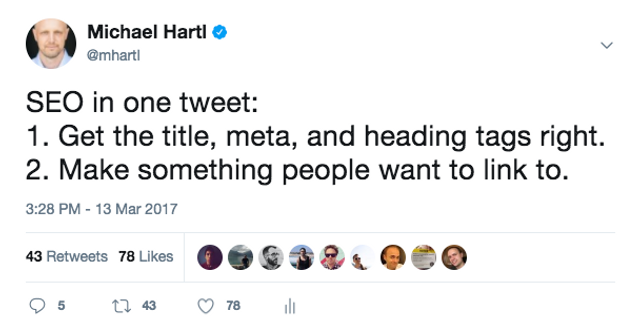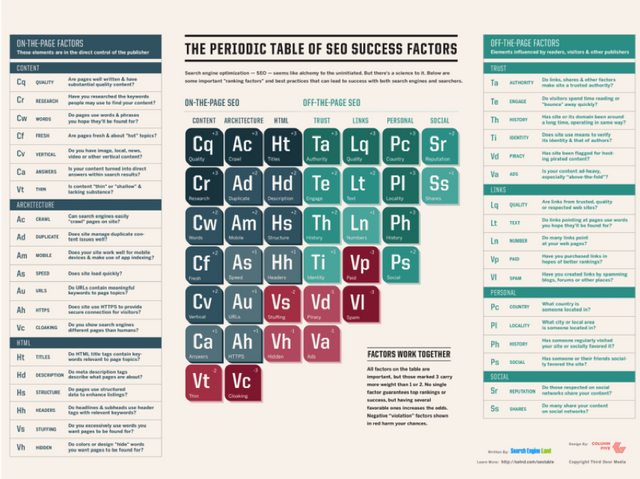
Search Engine Optimization, or SEO, is the process of affecting the visibility of a website or a web page in a search engine's "natural" or un-paid ("organic") search results.
Of course, Google is the most well-known search engine so we often refer to this as "How to Rank on Google", so what does Google look for?
This playful and only slightly hyperbolic tweet from Michael Hartl lays out the core of SEO.

There is, indeed, a bit more you can do to rank on Google, get more pageviews from existing visitors, and grow traffic in general - we expand on a few important ideas below and, in a few lessons, we'll walk through the basics of improving your titles to maximize impact.
The graphic, to the left, from searchengineland.com expands on SEO and while interesting it's not terribly actionable.
Let us greatly simplify this down for you to so you can better think about your web-based content:
The good news is that most Content Management Systems (CMS)/Websites, like our Community Content Engine, handle a lot of the heavy lifting for you. This should include handling the structure of the code, ensuring the site loads quickly and can be viewed on mobile devices, includes social sharing buttons and handles keywords, sitemaps, and other technical optimization.
With all the technical aspects handled for you, you may be thinking you are all set. That couldn't be further from the truth there are a few simple things can ensure you rank well in Google - we expand on the list below in upcoming chapters.
In this video, we analyze, Natural Awakenings Richmond to share easy-to-use-secrets that help you higher on Google.
You can take these ideas and apply them to your own publishing business to grow your reach and meet your consumers where they are at (or rather where they are searching).
Use this checklist to make sure all your content is posted in an optimized way.